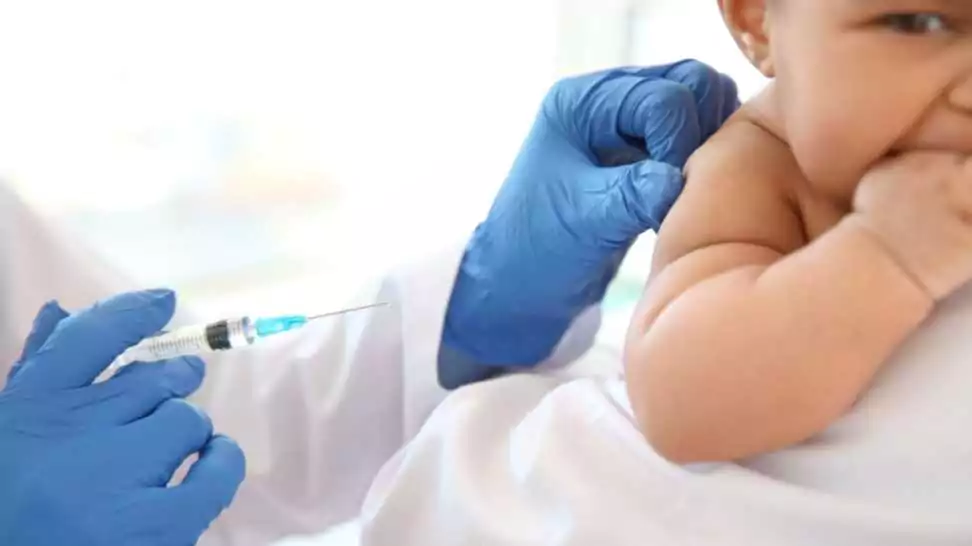How To Take Care Of Baby After Vaccination?

Vaccinations are a cornerstone in safeguarding your baby’s health, offering protection against many serious diseases. These preventive measures are crucial in the early stages of life to build a strong immune defense. However, it is common for babies to exhibit mild reactions following their vaccinations. This comprehensive guide is designed to reassure parents and caregivers, offering in-depth insights and practical advice on how to take care of baby after vaccination. We aim to empower you with knowledge and tools to navigate this phase with confidence and understanding.
1 Understanding Post-Vaccination Symptoms
Common Symptoms
After vaccinations, it’s typical for babies to show certain reactions such as mild fever, fussiness, and soreness at the injection site. These symptoms are generally mild, and transient, and are indicators that the baby’s immune system is actively responding to the vaccine.

Why These Symptoms Occur
Vaccines are formulated to mimic disease agents without causing the actual disease. This process prompts the immune system to develop a defensive response. The manifestation of mild fever or soreness is a natural and generally benign reaction, signifying the body’s adaptation and building of immunity.
Consulting a Doctor
Parents need to recognize the line between normal and unusual symptoms post-vaccination. Seek immediate medical attention if your baby experiences a high fever (above 101°F), persistent crying for more than 3 hours, or severe discomfort.
2 Comforting Your Baby
Physical Comfort

Gently massaging around the injection site can provide relief. Use soft, circular motions, being mindful to avoid applying pressure directly on the sore area.
Soothing Strategies
Physical closeness and comfort are crucial. Holding your baby close to your chest, swaddling them gently, and using soft, soothing sounds or lullabies can significantly calm them.
Sleep Considerations
Vaccinations might temporarily disrupt your baby’s sleep pattern. Ensure the sleep environment is serene and comfortable. Consider adding extra padding for support, maintaining a room temperature that is neither too hot nor too cold, and reducing noise and light levels.
3 Managing Fever and Pain
Safe Medication Usage
Acetaminophen or ibuprofen can be administered for fever and pain relief, following your paediatrician’s advice. It is vital to adhere to the recommended dosage, considering the baby’s age and weight. Never medicate without prior consultation with a healthcare professional.
Home Remedies
Applying cool compresses gently to the forehead can help reduce fever. Ensure that your baby is adequately hydrated and dressed in light, breathable clothing to promote comfort.
4 Feeding and Nutrition
Breastfeeding Considerations

Breastfeeding is beneficial for both nutrition and comfort. It is a natural way to ensure your baby stays hydrated and can be particularly soothing during times of post-vaccination discomfort.
Bottle-Feeding Advice
If you are bottle-feeding, maintain your routine. If your baby shows a decreased appetite, consider offering smaller amounts more frequently.
Hydration
Hydration is paramount, especially if your baby has a fever. Monitor for signs of good hydration, such as regular wet diapers, and ensure that your baby is getting enough fluids.
5 Monitoring and Record Keeping
Importance of Monitoring
Closely observe your baby’s reactions post-vaccination. Any significant deviations in behaviour or health should be noted.
Keeping Records Up-to-Date
Maintain an up-to-date record of your baby’s vaccinations. This is essential for tracking the vaccination schedule and is valuable information for any future medical consultations.
Reporting to Healthcare Providers

Be aware of warning signs that require immediate medical attention, such as signs of an allergic reaction, a high fever that doesn’t subside, or unusual lethargy, and report them to your healthcare provider without delay.
6 Emotional Support for Parents
Managing Parental Anxiety
It’s natural for parents to experience anxiety during this time. Educating yourself about what to expect can alleviate many concerns. Remember, the temporary discomforts are part of a crucial process in building your child’s long-term immunity.
Seeking Support
Do not hesitate to reach out for support. Consult paediatricians, join parenting groups, or talk to experienced family members for advice and emotional backing.
7 Wrapping Up
Caring for your baby after their vaccinations involves attentive monitoring, understanding normal versus unusual symptoms, and knowing how to provide comfort and relief. Remember, these transient discomforts are integral to the process of building robust immunity in your child. Stay informed, stay composed, and trust in the protective power of vaccinations. Your love, care, and informed actions are the best support your baby can receive during this time.
Community Q&A
About This Article
This article has been viewed 118 times.




This is really interesting, You’re a very skilled blogger. I’ve joined your feed and look forward to seeking more of your magnificent post. Also, I’ve shared your site in my social networks!